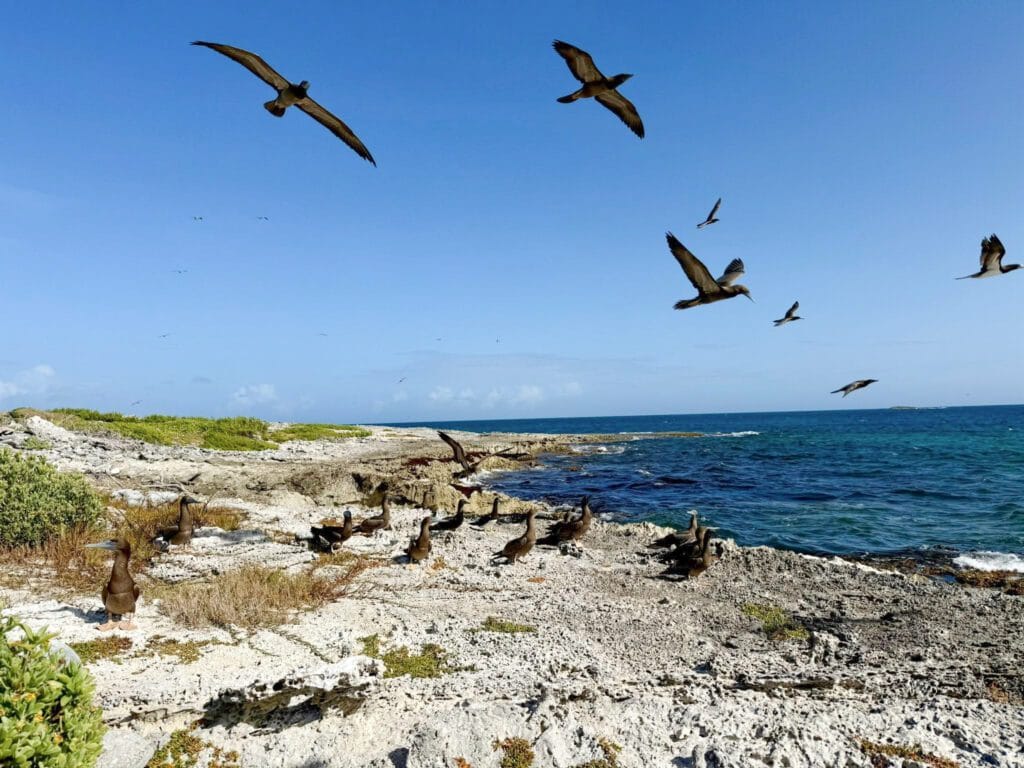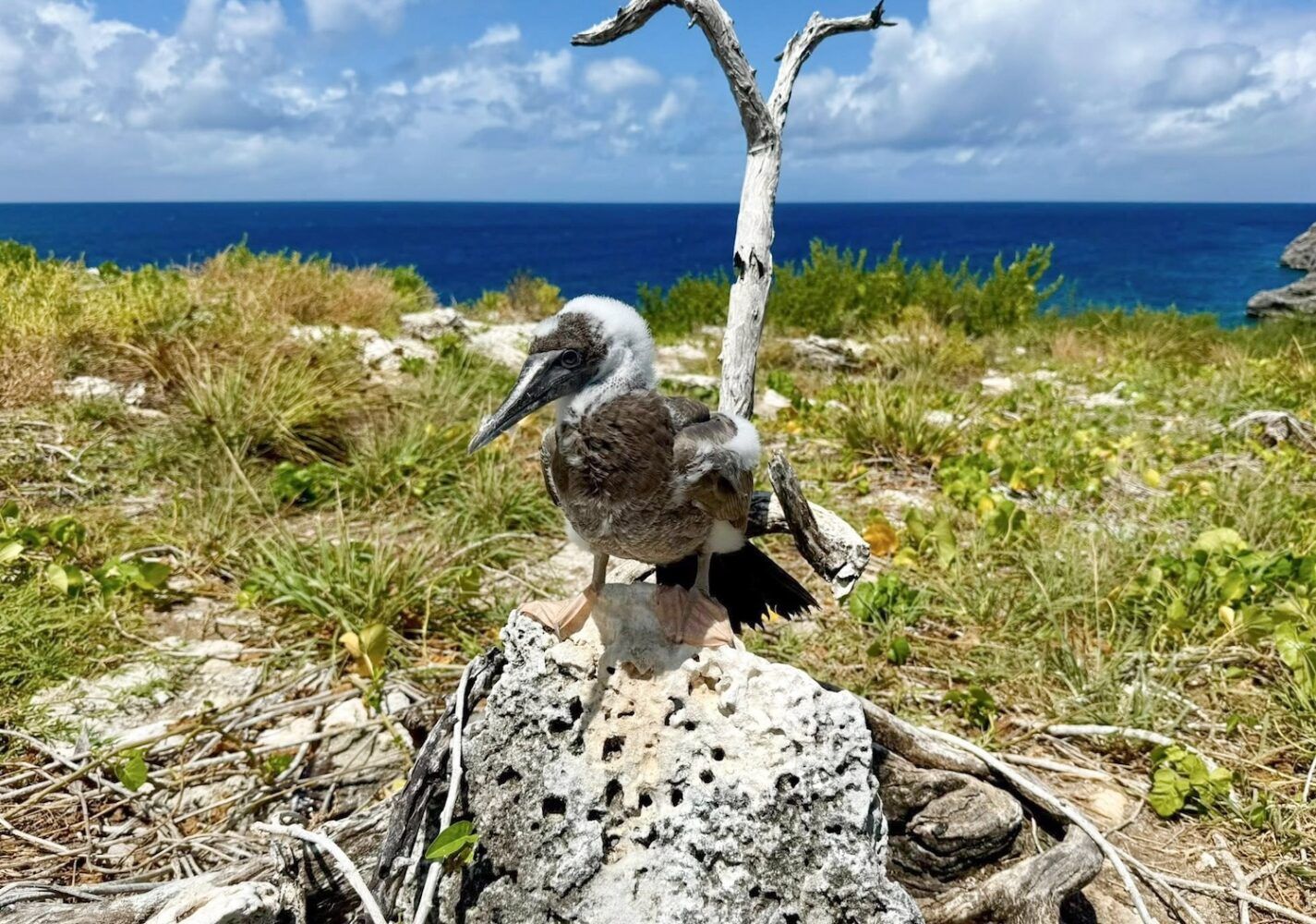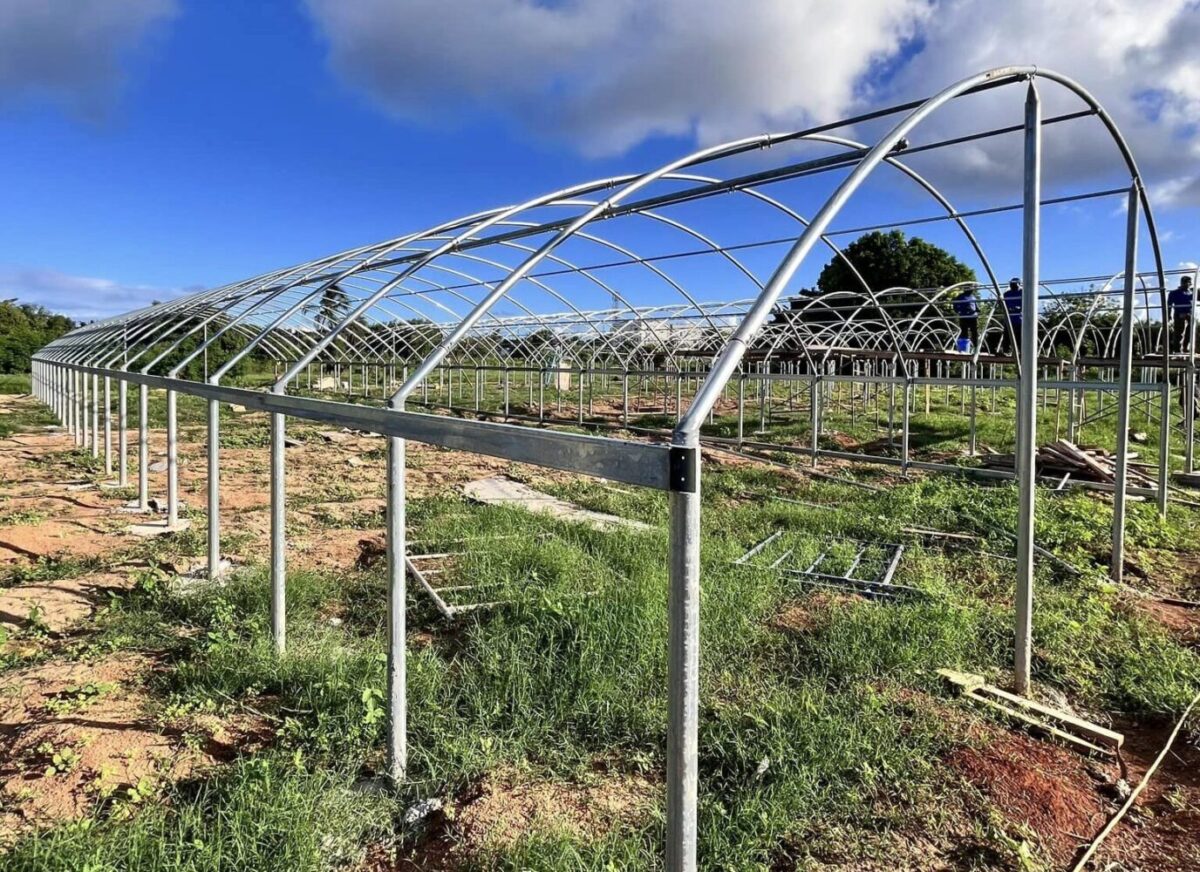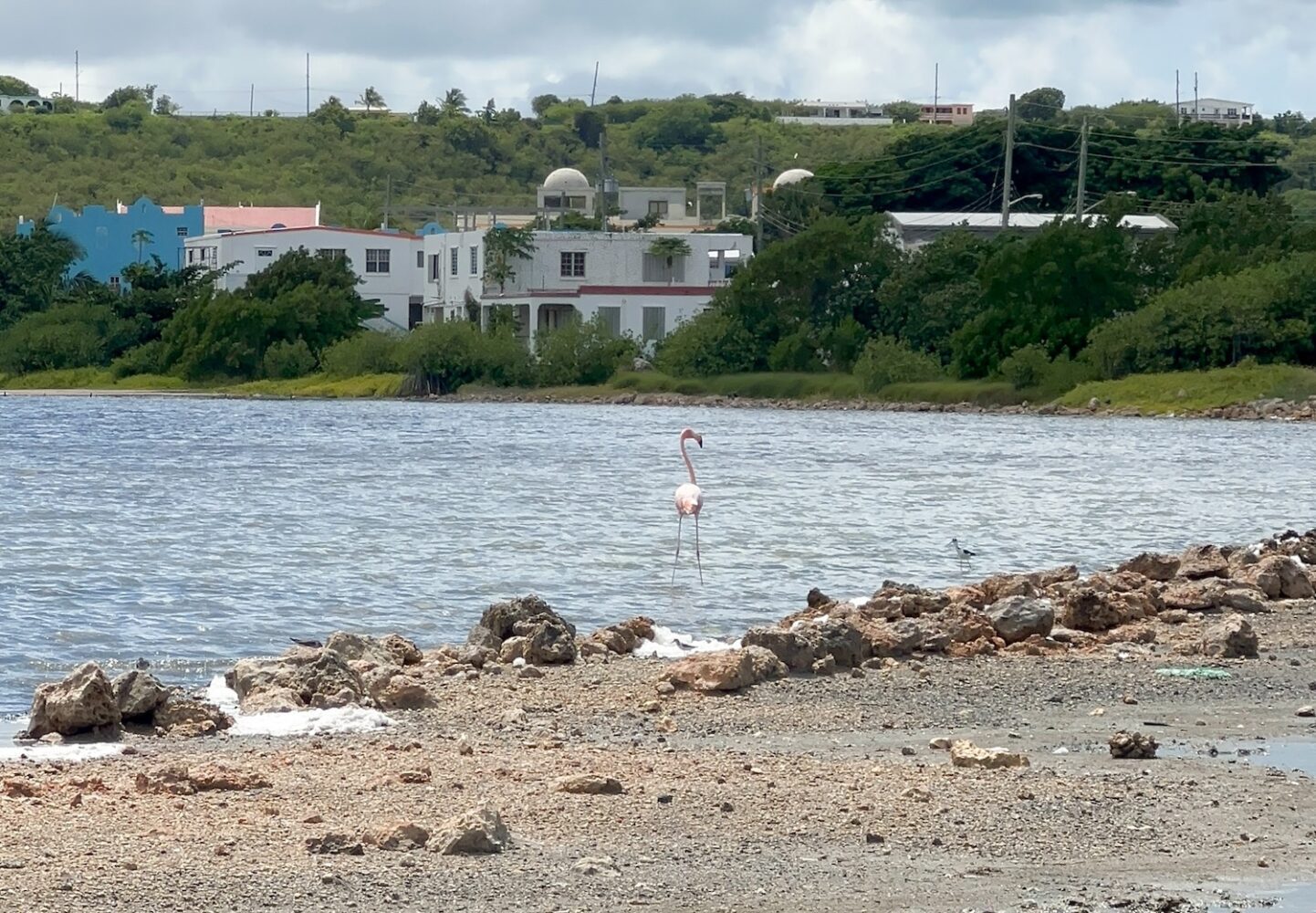The Anguilla National Trust is working to eliminate rats from Prickly Pear West to protect the island’s endemic species and biodiversity.
Over the past few months, staff and volunteers have launched an “emergency rapid response” after the small mammals were spotted on the island for the first time in seven years.
The effort has included laying poisonous bait, setting and checking hundreds of monitoring stations, and using trail cameras to track rat activity.
At Anguilla Focus we keep our core content free for everyone – but our members get access to even more! Click here to join from just $3 per month.
Farah Mukhida, executive director of the Anguilla National Trust, told Anguilla Focus on 9 September that rats are a non-native, invasive species.
“[They] directly lead to the mortality of native wildlife, including seabirds and terrestrial birds – especially chicks – as well as sea turtle eggs and hatchlings by preying them,” she said.
“They also eat the seeds and fruit and of vegetation, preventing natural recruitment and regeneration which can then lead to declines in plant populations.”
Hard to detect
Mukhida said the bait used only impacts mammals: “The colour and taste of the bait is not attractive to other animals – it is blue and bitter – which reduces the risk of other non-target animals consuming it.”
She added that it makes the rats feel unwell causing them to return to their burrows where they die.
Mukhida explained that during the trust’s initial eradication exercise in 2018, members found very few dead rats above ground, and during the latest, two were found and removed from the island.

“It’s been an intense and stressful couple of months,” a Facebook statement from the Anguilla National Trust said on 29 August.
Several volunteers showed up in the early mornings, carrying heavy loads and working through the “often unrelenting and unbearable” heat to monitor the situation.
“Luckily we haven’t seen any further signs of rats over the last month, but when rats are in low numbers, they’re notoriously hard to detect, and so our monitoring and biosecurity efforts continue,” it added.
Stowaways
The trust said it believes that the rats likely swam to the island, possibly from a visiting boat that may have been moored just offshore.
The statement went on to ask for the public’s help in looking out for rats when travelling to the outer islands.
“Please check your boats, your bags, your coolers to make sure there are no stowaways,” the trust said.
“If, by some chance, you do find a rat or some other invasive species in your gear, in your bags, or on your boat, please don’t toss them overboard alive. They can swim – literally for kilometres.”
The Anguilla National Trust asked the public to trap any rats they find and contact them at (264) 235-5297 or [email protected] for the animals to be killed.





